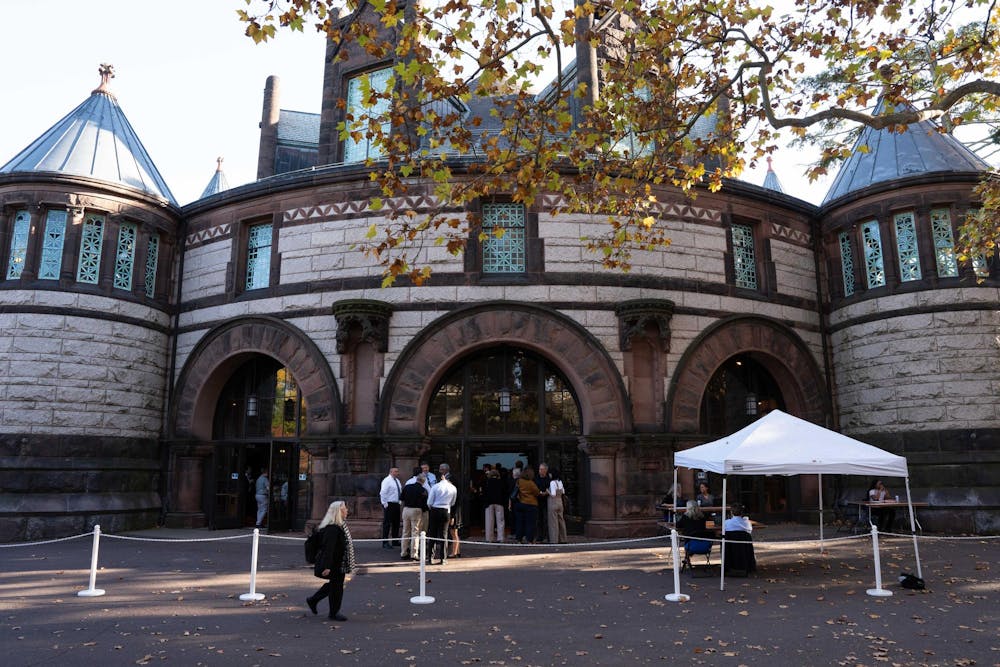The following is a guest contribution and reflects the author’s views alone. For information on how to submit a piece to the Opinion section, click here.
At the recent Nov. 4 faculty meeting, professor John Londregan introduced an amendment to the faculty’s Rules and Procedures that would allow remote voting for faculty-initiated measures after they have already been approved by a majority of faculty present at the meeting. As per its own provisions, the amendment, which passed, was challenged and is now being brought before the faculty for an electronic verdict.
We, who prepared the challenge, write to encourage faculty to overturn this amendment. What the amendment proposes is not a minor change. It will affect faculty governance in radical ways, raising serious governance issues beyond today’s historical juncture.
The University faculty, when meeting, is an assembly, not an electorate. To implement a remote electronic vote that will enable a segment of those voting to opt out of the deliberation stage undermines our institutional traditions. When we meet as faculty, we aim to deliberate and govern together. That role cannot be reduced to casting votes. The faculty have already chosen to use remote balloting where it is appropriate: We elect nominees to serve on committees by electronic ballot. But this is distinct from the important business we take up when we discuss policy.
The amendment not only calls for remote voting without deliberation, however. Specifically, it subjects to another vote proposals already voted on and passed or rejected by a majority of those present at a faculty meeting — this time as an electronic vote in absentia.
Our current Rules and Procedures expressly discourages attempts to easily overturn a decision taken by a majority at a faculty meeting. It provides that only those who supported or abstained from the decision may motion to reconsider it. You cannot challenge a motion you already voted against, but the proposal before us allows for precisely that.
We strongly support thinking about best practices for inclusive faculty governance and how to increase participation. We also believe that any reform to our Rules and Procedures should protect and encourage thoughtful and respectful deliberation and a plurality of views. In-person faculty meetings — once a month, with the occasional extraordinary meeting — provide a necessary space not only for democratic engagement, but also for faculty governance that a remote vote without deliberation cannot emulate.
Some who spoke in support of the amendment felt it would allow them to participate in our governance, as their busy careers and personal obligations make it difficult for them to attend in-person faculty meetings, especially unplanned ones. We are all affected by those constraints, no matter which side of a political or administrative question we’re on. But if we aspire for shared faculty governance, we should accept that we will need to put in some time and effort towards attending meetings where policy and positions are discussed and decided.

Or, if there is a consensus that the current arrangement is insufficient, there should be further faculty deliberation and perhaps an ad-hoc committee with representatives from all units to address the issue — we cannot simply resign ourselves to a convenient, virtual voting that would negate a consensus resulting from a deliberative and democratic process.
The in-person, all-faculty meeting is our space, as teachers at Princeton, to gather and deliberate. At some point, or under some conditions like a pandemic, it may become virtual, but the space, whether virtual or real, needs to be there. It is not only the place for the final approval of new courses and the reading of eulogies for our late colleagues. It is also where our University’s Rules and Procedures allow for us to come together as a group, with our bodies, hearts, and minds. We put faces to names, voices to ideas. We own up to our thoughts and principles. We learn to communicate across our differences and to try to persuade others of our perspectives.
A remote vote replacing discussion and voting, especially a vote on a matter that was deliberated and already voted on, reduces the intentional act of the faculty meeting into an act of convenience and sends us only deeper into our own echo chambers.
Professor Londregan concluded his recent op-ed in support of the amendment with the projection that, “If it [the amendment] is approved, it may be the last faculty meeting you ever have to attend.” This possibility isn’t exciting — it’s unsettling. It fundamentally threatens our tradition of faculty governance.

We ask that faculty access the voting link from the Dean of the Faculty and reject the amendment by casting a “no” vote.
Divya Cherian is an associate professor of history and can be reached at dcherian[at]princeton.edu.
Nancy Coffin is a senior lecturer in Near Eastern studies and can be reached at ncoffin[at]princeton.edu.
Andrew Cole is a professor of English and can be reached at acole[at]princeton.edu.
Hendrik Lorenz is a professor of philosophy and can be reached at hlorenz[at]princeton.edu.
Rob Nixon is a professor of English and the High Meadows Environmental Institute and can be reached at rnixon[at]princeton.edu.
Gabriela Nouzeilles is a professor of Spanish and Latin American studies and can be reached at gnouzeil[at]princeton.edu.
Dan-el Padilla Peralta is a professor of classics and can be reached at dpadilla[at]princeton.edu.
Susan Sugarman is a professor of psychology and can be reached at sugsue[at]princeton.edu.








